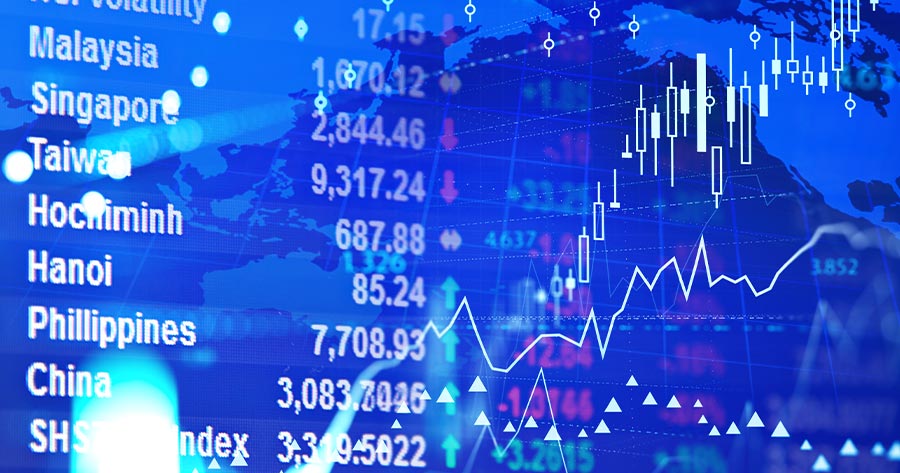On Friday morning (21 February, 9:31 AM, GMT+7, Bangkok time), major indices in Asia Pacific traded mixed as investors analyzed Japan’s inflation data, with concerns over the U.S. President Donald Trump’s tariff threats weighing on investor confidence.
In January, Japan’s inflation rate surged to 4%, marking its highest level since January 2023. Core inflation, excluding fresh food prices, exceeded economists’ 3.1% expectations, reaching 3.2% based on a Reuters poll – the highest since June 2023.
Furthermore, the “core-core” inflation rate, excluding both fresh food and energy prices, experienced a slight increase to 2.5%. Headline inflation has consistently stayed above the Bank of Japan’s 2% target for 34 consecutive months.
Japan’s NIKKEI slid by 0.05% to 38,659.05. South Korea’s KOSPI contracted by 0.3% to 2,646.2, and Australia’s ASX 200 dropped by 0.17% to 8,309.
As for stocks in China, Hong Kong’s HSI jumped by 2.28% to 23,091.24. Shenzhen’s SZI rose by 0.57% to 10,856.38, while Shanghai’s SSEC dipped by 0.07% to 3,348.45.
Meanwhile, the US stock markets edged down on Thursday as the Dow Jones Industrial Average (DJIA) slumped by 1.01% to 44,176.65. NASDAQ declined by 0.47% to 19,962.36, and S&P 500 lost 0.43% to 6,117.52. VIX soared by 2.55% to 15.66.
As for commodities, oil prices settled higher on Thursday following reports of decreased gasoline and distillate inventories in the U.S. Meanwhile, concerns over supply disruptions in Russia also lend support to prices. Brent futures expanded 44 cents or 0.58% to $76.48 a barrel, and the West Texas Intermediate (WTI) added 32 cents or 0.44% to $72.57 per barrel.
This morning, Brent futures decreased 2 cents or 0.03% to $76.46 a barrel, while the WTI remained unchanged at $72.57 per barrel.
Meanwhile, gold futures fell 0.06% to $2,954.2 per Troy ounce.




